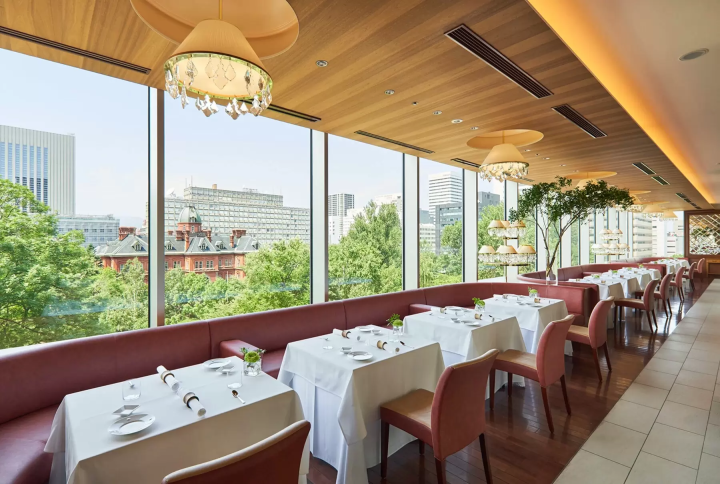Ieshima Island: Explore Rural Japan near Himeji City

Just 30 minutes by ferry from Himeji, a city renowned for its castle, lies Ieshima. This small island may not have many tourist attractions, but it is a real gem if you want to experience rural Japan in its untouched state! Ieshima Island is known for its pristine forests, panoramic views of the Seto Inland Sea, and freshest fish cuisine. You can visit it all year round: the best times are in spring and autumn when cherry blossoms and fall foliage are at their peak. Summer is perfect for beach...
Two simple steps to access Ieshima from Himeji Station
Ieshima is located approximately 18 kilometers southwest of Himeji City in Hyogo Prefecture. It is part of the Ieshima Archipelago, which consists of 44 large and small islands.
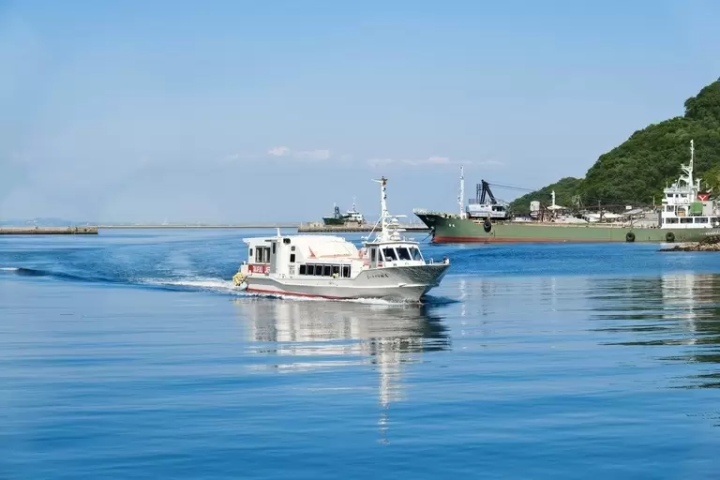
Getting to Ieshima is easy and involves two steps: getting to Himeji Port and catching a boat. If you arrive via bullet train at Himeji Station, head to the north exit. Then, walk to the left to find a bus stop (number 1). Buses bound for Himeji Port typically run every 20-30 minutes, depending on the time of day, but checking the schedule in advance is recommended! Another option is to get a taxi to the port, which should take at most 20 minutes.
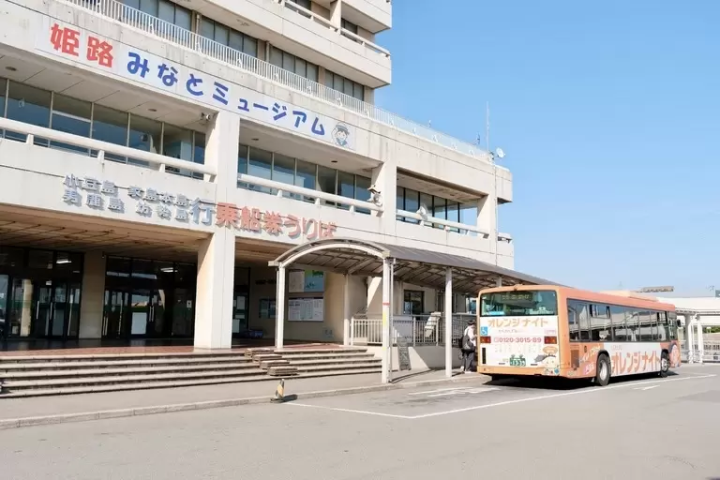
Upon arriving at Himeji Port, head to the ticket office next to the bus station to purchase a ferry ticket. Then, board the short 30-minute boat ride.
There are two ferry options to Ieshima: the Kosoku Ieshima and the Takafuku Liner. Both options cost 1,000 yen for a one-way trip, each serving two ports—Maura Port in the west and Miya Port in the east. For more information, please visit the official website of Himeji Port.
Arriving to Ieshima: Renting Bicycles and Discovering the Island's Charm
The name "Ieshima" is said to have originated from an ancient tale about Emperor Jimmu, who reigned around 660–585 BC. According to the legend, the Emperor sought refuge on Ieshima during a storm encountered on his eastern expedition. The island, with its natural harbor, provided shelter, and the calmness of the bay inspired the name "Ieshima," which means "home island."
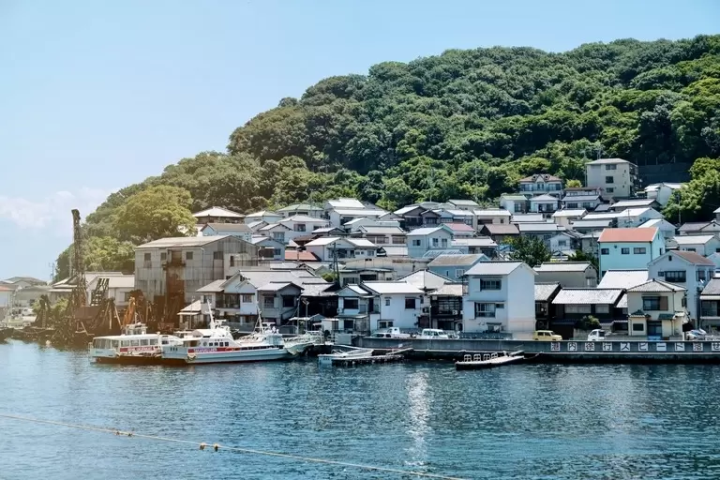
Upon arriving on the island, you will first notice it's very compact and welcoming. When you get off at the first stop, Maura Port, head straight to the "Ieshima Port Plaza," next to the port, to rent a bicycle for the day. Here, you'll find tourist information, bicycle rentals, a walking map of the island, souvenir shops, and a place to leave your luggage if needed. Although the price was slightly higher, I rented an electric-assist bicycle just in case I got tired.
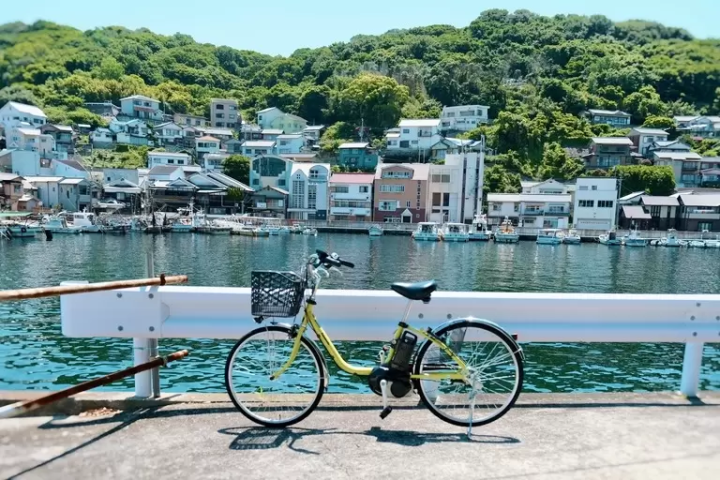
The rental fee for electric-assist bicycles is 1,000 yen for up to 1 hour, 1,200 yen for up to 3 hours, and 1,500 yen for up to 5 hours. Using the bike for more than 5 hours will cost 100 yen per hour, with a maximum daily fee of 2,000 yen. You must pay a deposit of 2,500 yen upfront, which will be refunded when you return the bicycle (prices are subject to change). The rental fee for regular bicycles is 600 yen per day. Also, please remember to bring cash with you to the island, as I've noticed that many places do not accept credit cards or any form of payment other than cash!
Route for First-Time Visitors
While it is possible to make a day trip from Himeji, the island's serene ambiance invites visitors to consider an overnight stay, so I will mention that option, too!
After renting a bicycle, I quickly rode through the island along the main road to Shimizunohama Beach. There are few roads on the island, so you only need to follow the main road along the sea. The road is narrow, so be extra careful and give way to locals on small, colorful motorbikes and tiny Suzuki Carries.
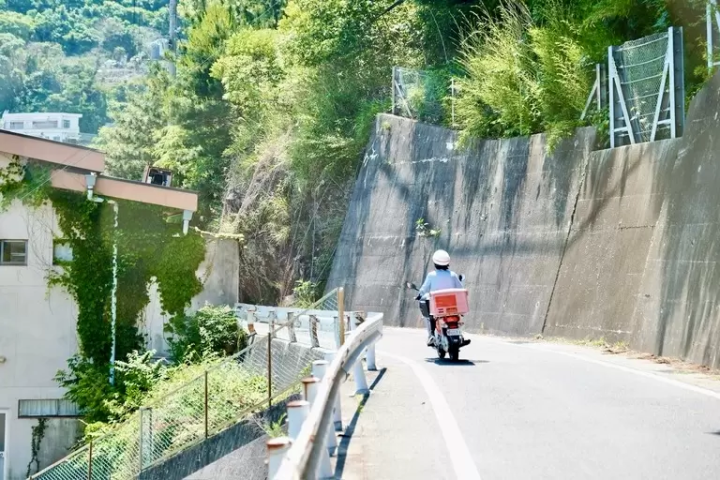
Ieshima is still yet to be discovered by most foreign tourists, so I felt like I was the only visitor on the island that day. It felt extraordinary. As you travel along the coastline, you will notice numerous tiny houses, locals leisurely hanging out, washing clothes, and fishermen on sparkling boats—what a tranquil scene!
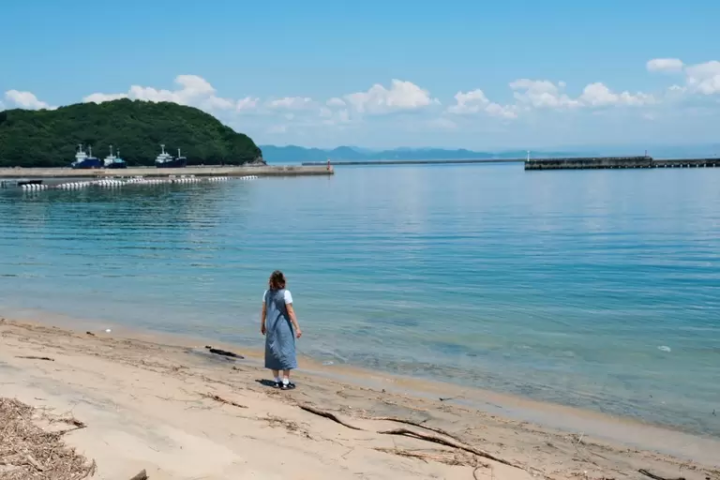
Since I visited in June, Shimizunohama Beach was empty as the swimming season is yet to begin. However, as soon as July arrives, enthusiastic beachgoers from Kyoto, Osaka, and Kobe flock to the island of Ieshima, attracted by its beautiful beaches. The clear sea and white sandy shores provide perfect marine sports and sunbathing conditions. Although the main beach is only about 150 meters wide, it is well-maintained with regular cleaning and sand replenishment.
If you are a fan of summer sports and activities or just want to stay on this peaceful island a bit longer, check out the hotel across the road from Shimizunohama Beach—Japanese cuisine & Inn Shimizu. This is the only hotel nearby, so you will find it easily.
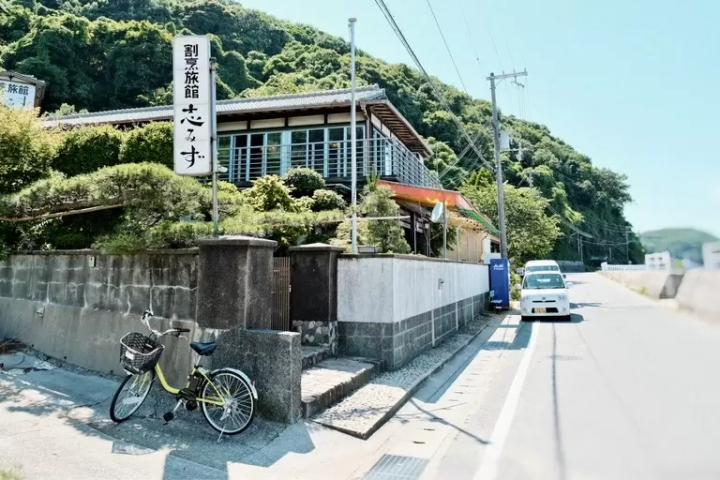
Experience an overnight stay on the island!
The main attraction of this retro ryokan is its rooms with stunning ocean views, allowing guests to admire the Seto Inland Sea from their windows. Upon entering, the ambiance makes you feel as if you've traveled back in time, with many items from Japan's past, maze-like corridors and staircases, and swing jazz adding to the nostalgic atmosphere. There is no hot spring, but you can enjoy a medicinal herb bath using carefully cultivated herbs from Ieshima to help you relax and find peace.
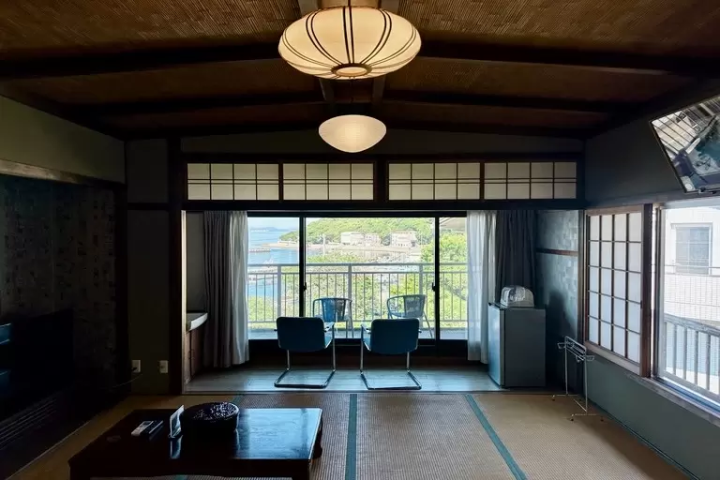
Although I didn't have the chance to try it this time, the ryokan also serves delicious local and creative dishes made from fresh Ieshima seafood and seasonal sake from the region. In addition, the inn offers a variety of dining options suitable for day-trip visitors. The establishment's owner pointed out that they had calculated that 98% of their customers were return visitors. This is no surprise, as I am already planning my next visit!
Honorable Ieshima Shrine, a Guardian of the Seto Inland Sea
Ieshima Shrine was my next point of interest. It has a history dating back over 2,000 years. It is dedicated to the safety of seafarers and guards the Seto Inland Sea.
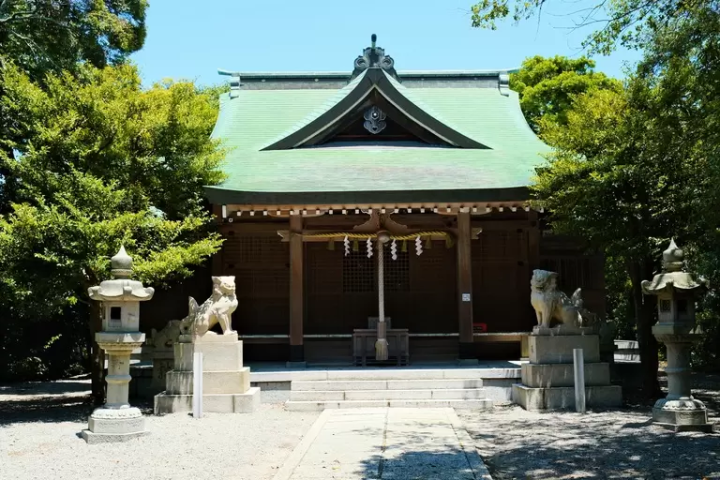
The route to the shrine on a bicycle took at most 7 minutes. However, the most challenging part was waiting for me since I did not know that the shrine was situated at the top of hill, surrounded by the island's only virgin forest that had been untouched by man until the shrine's creation.
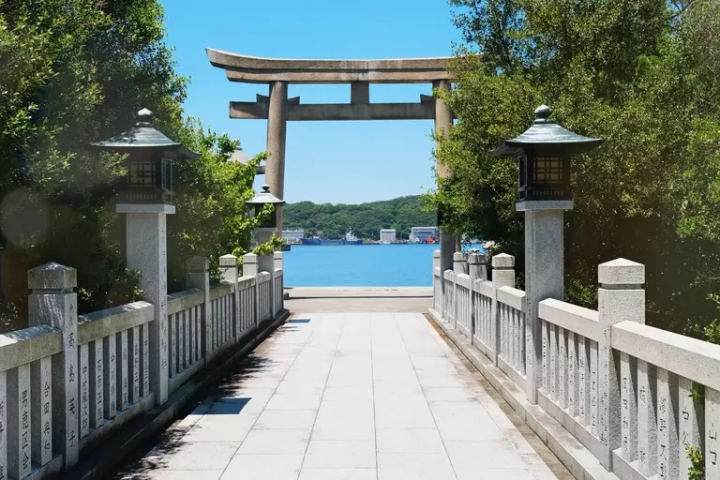
To reach the shrine, you need to walk through a grand torii gate, which is a striking sight against the backdrop of the sea! After that, climb to the shrine's top - 170 stone steps. After ascending them all, it is said that the evil spirits will be gone from your body. I am unsure about the evil spirits, but my body yearned for water after this pretty tiresome climb - so remember to bring something to drink with you!
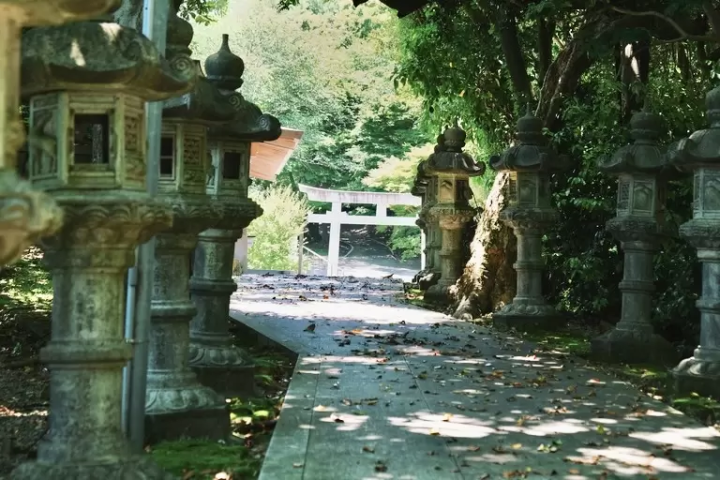
One of the most significant events at Ieshima Shrine is the annual Summer Festival, held in July. The festival features a lantern procession, lion dance performances, and sacred rituals performed by shrine maidens. Visitors can experience the region's vibrant atmosphere and traditional culture during this festive occasion. Find more information on the island's events here.
Despite its significance, the shrine appears relatively quiet and is not widely known among tourists. When I visited, I found myself alone. I stood there, feeling the breeze, listening to the sound of the birds, and looking through the bright green forest over the Seto Inland Sea. This place is a worthwhile destination for those seeking tranquility and spiritual reflection!
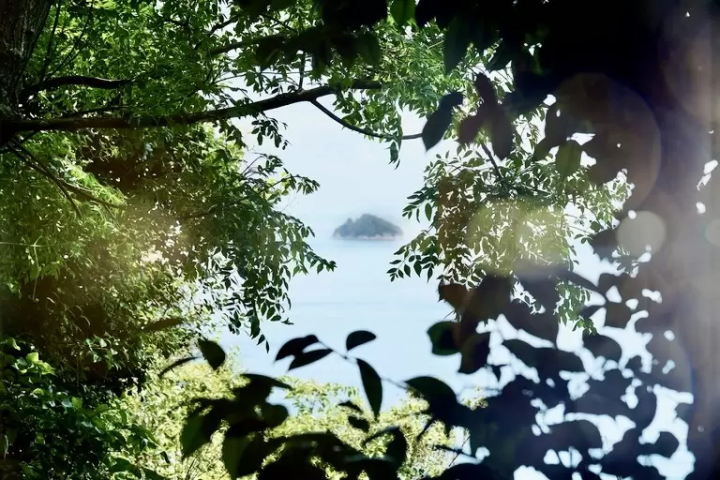
After a leisurely walk and climbing the shrine's stairs, I decided to take a break at a local cafe. With only a handful of cafes in the area, I recommend planning ahead and checking their opening days since many are only open a few days a week. I visited the cafe only five minutes from the shrine and was rewarded with a breathtaking sea view right before my table.
A Seaside Feast in an Old Factory: Unusual Lunch Experience
The place I visited for lunch was pretty quirky—a repurposed old factory. The cafe retained the factory's industrial vibe, featuring a high, open ceiling and a spacious interior. There were still some open tables inside, but since it was a warm June day, I decided to sit outside and feel the sea breeze. The staff was so kind that they placed a parasol so I could enjoy my meal in the shade.
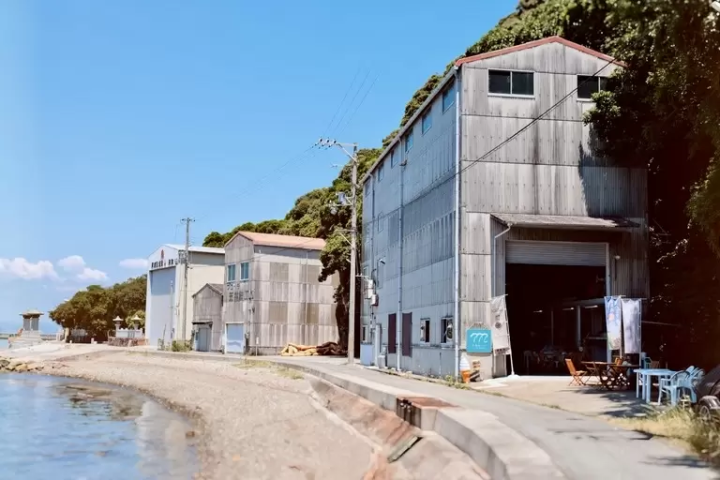
I went for the most popular item on the menu, the "Fish Lunch," which featured freshly caught braised sea bream from local fishermen. The meat was so tender that it almost melted in my mouth, and the lightly soy-flavored braise complemented the taste. There were several side dishes, too, such as flounder sashimi, freshly caught whitebait, some seaweed, and local veggies carefully prepared homemade. Honestly, this lunch is my new comfort food – it made me so relaxed I almost fell asleep under the parasol!
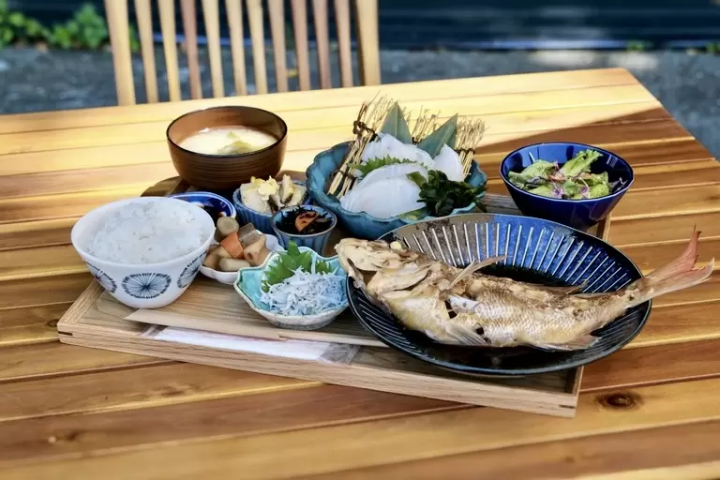
If you are not a fish enthusiast, enjoy the 'Ieshima Burger Set,' rice omelets, curry, and other options. For those with a sweet tooth, check out Maammy's colorful cream sodas, Seto Inland Sea salt ice cream, and other choices.
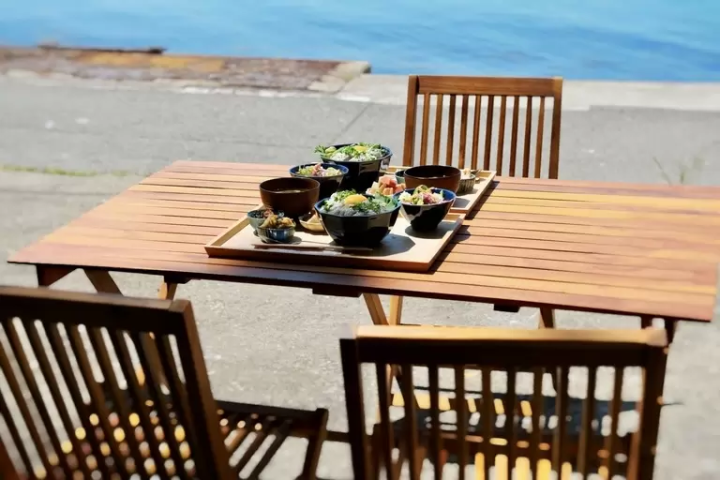
Returning to Himeji and Making a Promise to Come Back
I had so much fun that I almost forgot I had to return the bicycle by 4 pm—another reason to stay overnight on the island next time! Reluctantly, I cycled back to Maura Port.
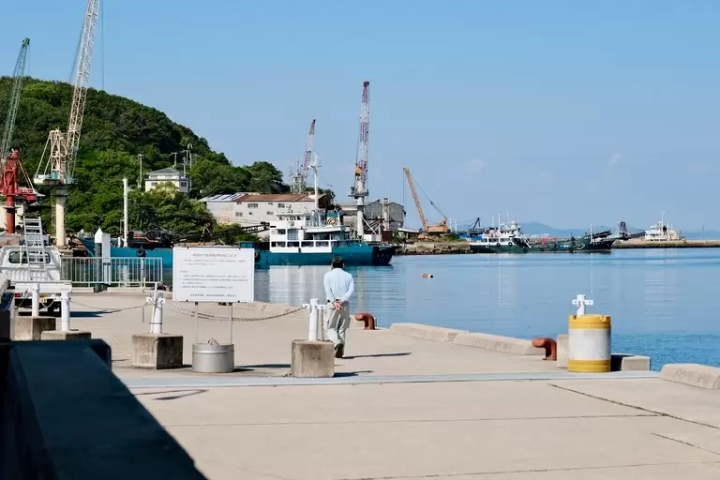
Honestly, I didn't expect to enjoy Ieshima Island so much. Its slow-paced lifestyle, shimmering blue sea, kind people, and fantastic food made me fall in love with it. I promised myself that I would come back, not just for a day trip from Himeji, but for an overnight stay to see the sunset at the beach or participate in a local festival. This adventure is far from over—I will be back!
Welcome to Hyogo Hyogo is a gateway to the Kansai region, which nurtures the blessed land that connects the Sea of Japan, the Chugoku Mountains, and the Seto Inland Sea, as well as the blessed climate. There are many spectacular views that will catch your eye, such as Himeji Castle, a World Heritage Site that was selected as one of the 100 Best Cherry Blossom Spots, and the panoramic night view from Mt. Rokko. The world-famous Kobe brand, KOBE BEEF, which is synonymous with Tajima beef, is one of Japan's leading beefs, and the sake rice ``Hyogo Yamada Nishiki'' is a gem that will surprise your tongue. Arima Onsen is a famous hot spring, and Kinosaki Onsen has appeared in many literary works. Surrounded by nature, you can relax your mind and body. You can come across memorable sounds such as the thunderous sounds of the whirlpools of Naruto on Awaji Island, and the dynamic sounds of the fireworks festivals held in various places in the summer. In the herb gardens and botanical gardens in the prefecture, you will be healed by the gentle and pleasant scent of herbs and flowers throughout the four seasons. Enjoy a new journey in Hyogo that stimulates the five senses of sight, taste, touch, hearing, and smell.
The contents on this page may partially contain automatic translation.






















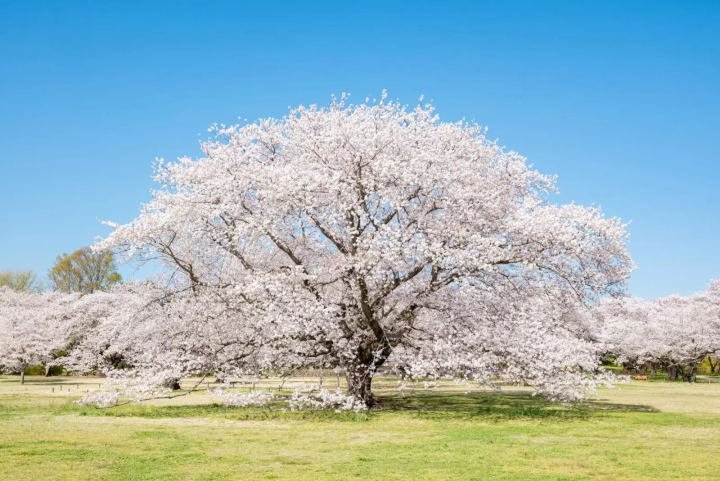

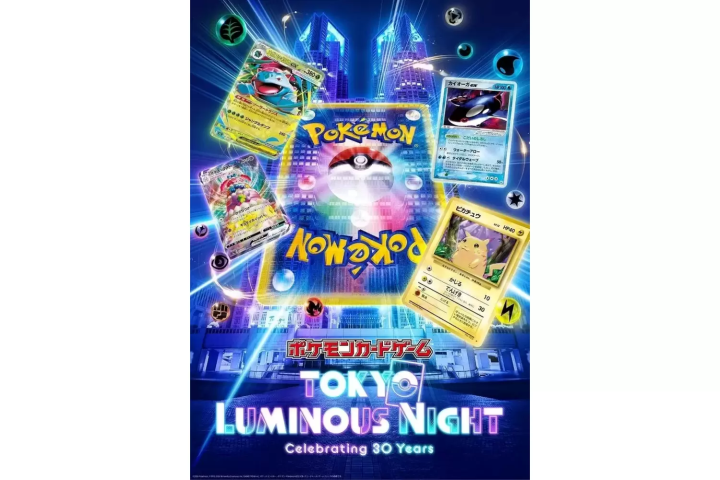






![[Yufuin] Yunohira Onsen: A Hidden Gem of Red Lanterns and Ancient Stone Paths](https://resources.matcha-jp.com/resize/720x2000/2026/03/03-260208.webp)
![[30 minutes from Nagoya!] Enjoy Tokoname strawberries at a cafe in Tokoname](https://resources.matcha-jp.com/resize/720x2000/2026/02/20-259382.webp)
![[Fukui Prefecture] Eat, drink, and take home! Enjoy Tsuruga City's gourmet food and souvenirs](https://resources.matcha-jp.com/resize/720x2000/2026/02/12-258491.webp)
![[Experiences] South Osaka & Wakayama Factory Tours|Learn Japanese Craftsmanship Through Hands‑On Experiences](https://resources.matcha-jp.com/resize/720x2000/2025/11/06-249221.webp)
